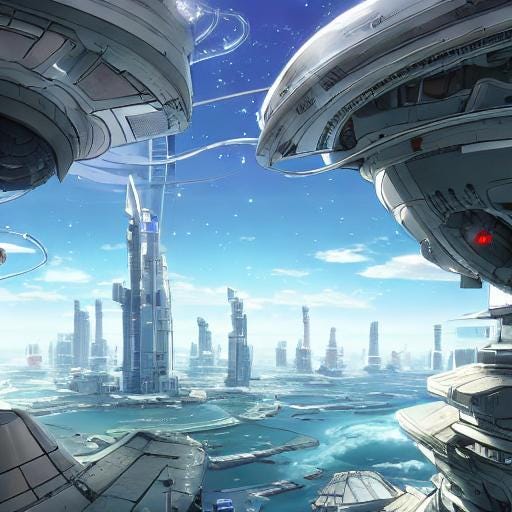The Future of Sci-Fi: Trends and Transformations in the Genre
As we stand on the cusp of a new era, the future of sci-fi is taking shape, shaped by emerging trends that reflect our changing perspectives on technology, society, and the unknown.
Science fiction, a genre that has long captivated our imaginations with visions of the future, alternate realities, and advanced technologies, is undergoing a fascinating transformation. As we stand on the cusp of a new era, the future of sci-fi is taking shape, shaped by emerging trends that reflect our changing perspectives on technology, society, and the unknown. In this exploration, we'll delve into the exciting shifts and transformations occurring within the realm of science fiction.
Diverse Voices and Perspectives
One of the most notable transformations in sci-fi is the growing diversity of voices and perspectives contributing to the genre. Traditionally dominated by a narrow demographic, today's sci-fi is welcoming a multitude of voices, offering fresh and varied outlooks on the future. Authors from different cultural backgrounds, genders, and experiences are enriching the genre, providing a more inclusive representation of the speculative future.
Climate Fiction (Cli-Fi)
As the reality of climate change becomes increasingly apparent, sci-fi is evolving to reflect our collective concerns about the environment. Climate fiction, or "cli-fi," is emerging as a prominent subgenre, exploring the impacts of climate change on societies, ecosystems, and individuals. These narratives serve as cautionary tales and imaginative explorations of a future shaped by our current environmental choices.
Augmented Reality and Virtual Realities
Advancements in technology are not only influencing our daily lives but also shaping the narrative landscape of sci-fi. The integration of augmented reality and virtual realities into storytelling opens up new dimensions for creative expression. Authors are exploring the implications of immersive technologies on human experience, blurring the lines between reality and fiction in unprecedented ways.
Biotechnology and Genetic Engineering
As we continue to push the boundaries of scientific understanding, the focus of sci-fi is shifting towards the possibilities and ethical dilemmas of biotechnology and genetic engineering. Stories that explore the manipulation of DNA, the creation of artificial life forms, and the consequences of playing with the building blocks of existence are becoming increasingly prevalent.
Exploration of Artificial Intelligence (AI)
The rise of artificial intelligence has long been a staple in sci-fi, but contemporary narratives are moving beyond dystopian visions to explore the nuanced relationships between humans and intelligent machines. As AI becomes more integrated into our lives, sci-fi is grappling with questions of ethics, consciousness, and the potential for harmonious coexistence.
Post-Apocalyptic Optimism
While post-apocalyptic settings have been a recurring theme in sci-fi, there is a growing trend towards narratives that embrace optimism and resilience in the face of catastrophe. Instead of focusing solely on the collapse of civilization, these stories explore the human capacity for rebuilding and adapting to a transformed world, offering hope in the midst of adversity.
The future of sci-fi is a dynamic landscape, shaped by the intersection of technological advancements, societal changes, and the ever-expanding imagination of storytellers. As we look ahead, the genre is poised to continue its evolution, offering not only thrilling tales of the unknown but also profound reflections on the challenges and opportunities that lie ahead. In this era of rapid change, sci-fi remains a powerful lens through which we can explore the limitless possibilities of the future.






